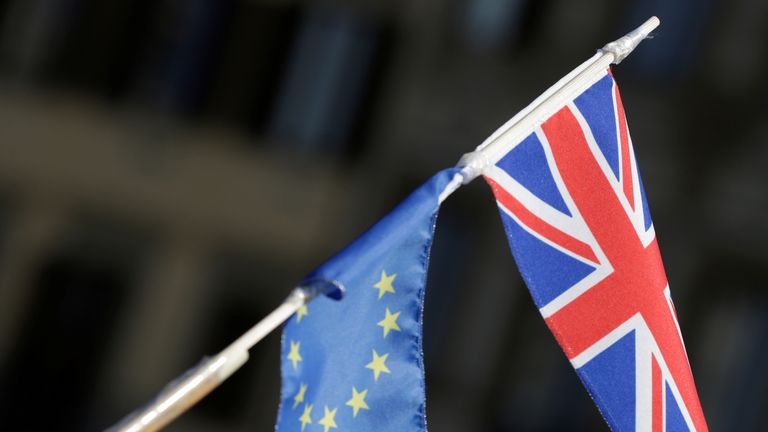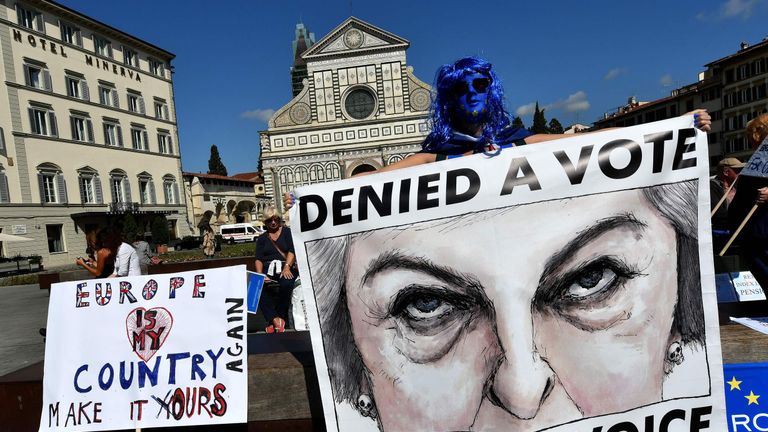Theresa May’s Brexit speech: What did Europe make of it?
Plans for a two year divorce period gets the attention of the European media, but the PM's address does not get star billing.
Saturday 23 September 2017 12:41, UK
Theresa May's keynote Brexit speech in Florence failed to make front page headlines on the continent.
The Prime Minister addressed leaders on Friday to urge creativity on exit from the EU and sought to offer reassurance on EU citizens' rights and future British payments to the bloc.
:: PM's Brexit plans 'a step forward' - Barnier
Leaders around Europe welcomed her apparent desire for cooperation while calling for more specifics about what the terms of exit will entail.
The sentiment was echoed by newspapers on the continent, which did not give the speech top billing.
Coverage tended to focus on the two year implementation period, after the UK's scheduled departure date at the end of March 2019.
Other papers concentrated on May's assurance that the UK wanted EU citizens to stay in its borders.
With the country preoccupied with its own election, German papers did not feature the speech as heavily as other news.
Frankfurter Allgemeine reported the proposed two year implementation period would be greeted with impatience by many Britons, while Welt said Moody's downgrading of the UK's credit rating would be seen as a "little slap in the face" to Mrs May.
In France Le Monde covered the main points of the address, while Le Figaro presented it as an attempt at an amiable divorce and Liberation judged the speech as conciliatory and full of concessions, but still vague.
:: PM positive on Brexit, but still thin on detail
With the speech having been held in Florence, Italian papers reflected the colour of the event. La Repubblica also headlined with the message that Mrs May wanted Italians in the UK to "stay", while La Stampa described the PM as "reaching out" to Europe.
Polish newspapers also focused on the message that Mrs May wanted EU citizens to stay in Britain, while the media in Scandinavia considered the transition period and the indication then UK would honour the country's financial commitments to the EU.




